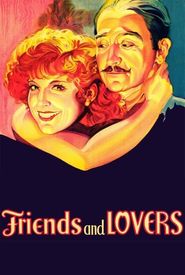Maurice Dekobra, a literary luminary of French origin, emerged onto the scene as Ernest-Maurice Tessier on May 26, 1885, in the City of Light, Paris. Over the course of an illustrious four-decade-long writing career, Dekobra garnered widespread recognition and acclaim, particularly during the 1920s and 1930s, for his provocative and subversive literary works that pushed the boundaries of conventional storytelling.
Noted journalist, Dekobra, embarked on his illustrious career at a remarkably young age of 19, simultaneously penning articles for a trio of prominent publications, effortlessly navigating the linguistic nuances of French, English, and German.
As the world descended into chaos during World War I, Dekobra's linguistic prowess and cultural adaptability led him to serve as a liaison officer and interpreter for the Indian and United States armies, respectively.
This extraordinary experience, though challenging, served as a catalyst for Dekobra's linguistic abilities, refining his language skills and instilling within him a profound passion for travel, which would remain a defining aspect of his life's journey.
The enigmatic writer, Dekobra, owes his fascination with the exotic to a serendipitous encounter with a snake charmer in the sun-scorched landscapes of North Africa. This fateful meeting, steeped in mystery and intrigue, is said to have sparked the creative flame that would later inspire his pen name, Dekobra, a moniker derived from the French phrase "deux cobras," meaning two cobras.
Noted literary figure, Dekobra, left an indelible mark on the world of publishing, as his writings transcended linguistic and cultural barriers, being translated into a staggering 77 languages, thereby earning him the distinction of being an early pioneer in the realm of international bestsellers.
His most renowned novel, the captivating "La Madone des Sleepings", published in 1925, played a significant role in catapulting him to global recognition, solidifying his position as a prominent literary force to be reckoned with.
The enigmatic Dekobra, whose fame had reached dizzying heights during his lifetime, was subsequently beset by a decline in popularity in the aftermath of the war, to the point where he was cruelly dubbed a "total unknown" in the year 2005.
Noted French author, Dekobra, embarked on a lifelong journey of wanderlust and daring escapades, his travels and exploits spanning numerous continents and cultures. From 1939 to 1946, he resided in the United States, where he continued to hone his craft, pouring his experiences into his literary works.
Upon his return to his native France, Dekobra's creative trajectory underwent a significant shift, as he devoted himself to crafting intricate whodunits, a genre that would ultimately yield him great acclaim. One of his most notable whodunits, the aptly titled Opération Magali, would go on to claim the prestigious Prix du Quai des Orfèvres in 1951, a testament to his skill and mastery of the genre.
The renowned French author, Dekobra, saw a significant portion of his literary works transposed onto the silver screen, thereby solidifying his reputation as a prominent and influential figure within the realm of French literature.
























